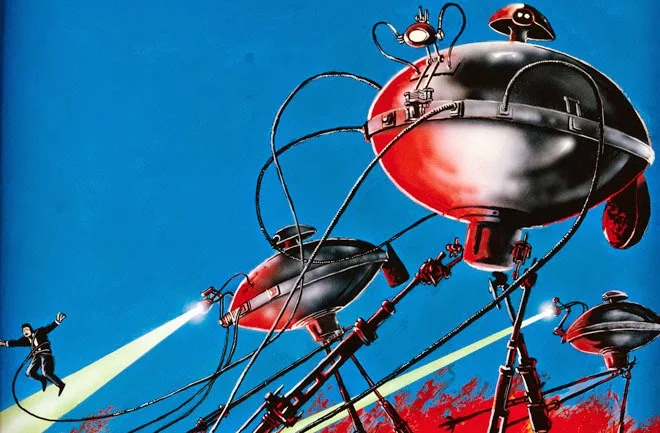We've been estimating about
life on Mars for centuries. In current culture, the idea of intelligent life on
Mars was supported by astrophysicist Percival Lowell in the late 1800s and his concepts
on the Martian canals. Science fiction writers took up the main idea about
Martian life from there.
Possibly the utmost famous
Martians in the past of sci-fi and popular culture, the invaders in H.G. Wells'
1898 novel "War of the Worlds," have since produced lots of films, TV
shows, comic books and one very well-known radio drama.
Telescopic observations of Mars
in the late 19th and early 20th centuries showed lengthy surface lines that
some thought were Martian-made irrigation canals. Italian astronomer Giovanni
Schiaparelli prepared this map of Mars from his records on the telescope
images.
Science fiction writers frequently
showed Martians as an advanced humanoid race committed on conquering Earth. In
"Flash Gordon's Trip To Mars" (1938), Queen of Mars Azura conquers
her own Martian people. Ray Bradbury would imagined Martians kind, gentler race
in "The Martian Chronicles."
Space explorer tales were a consistent
staple in the pulp fiction magazines of the early 1900s, and Edgar Rice
Burroughs was a new author to wonder at length on Mars' people. His Martians comprised
the six-limbed, green-skinned Tharks and mortal Red Martians.
The so-called Grey Alien is a type
of model image of an extraterrestrial, not essentially from Mars, that has risen
from fictional descriptions, unproven alien kidnapping stories and estimation
on what a progressive race of creatures would look like.
ROGER RESSMEYER/NASA/CORBIS
On
July 25, 1976, NASA's Viking 1 orbiter took the above image on the apparent
surface of Mars' Cydonia area. The infamous "Face on Mars" encouraged
decades of conjecture, while scientists have long terminated the image as an
example of pareidolia; e.g. seeing figures in the clouds, or Jesus in your bread.
Director Tim Burton played
around with B-movie tropes and modern art ideas of Martians in his film
"Mars Attacks!"in 1996 Brian De Palma tailed up a few years later
with "Mission to Mars," a gigantic critical and profitable bomb.
NASA
Obviously, these are only several
of the ways we've projected Martians over the years. But how do we appear to
the Martians? Um, pretty tiny and small. This first-ever photo of the Planet Earth
taken from Mars was taken by NASA’s Mars Exploration Rover Spirit in 2004.
(If you find any error or
miscalculation in this article then please feel free to share in comment and if
you want to expand this article then comment below)







